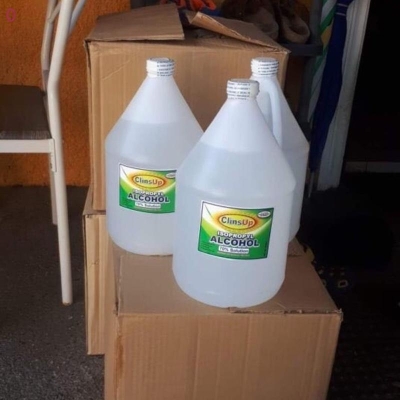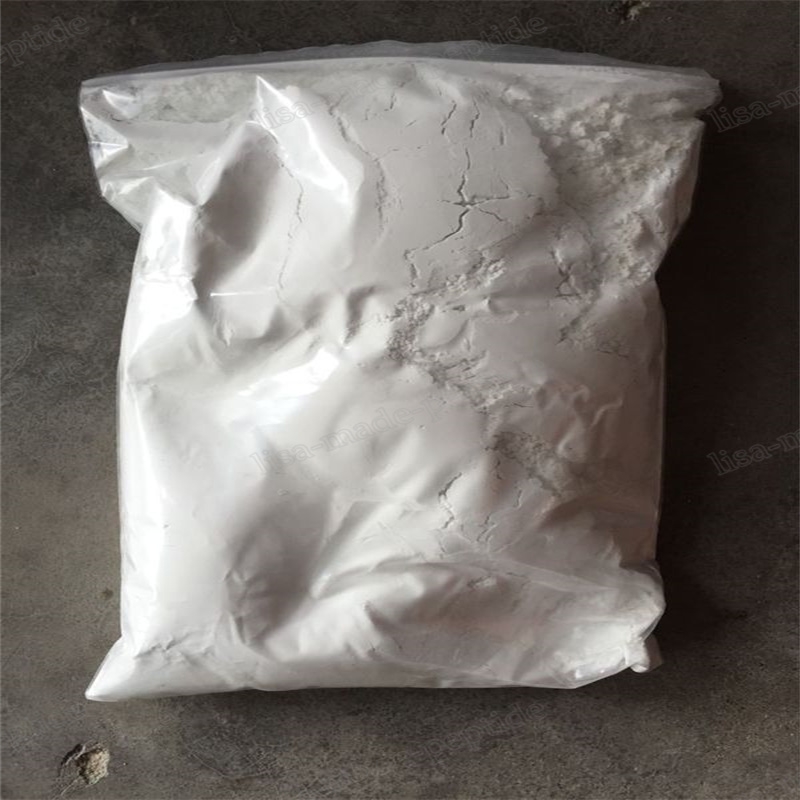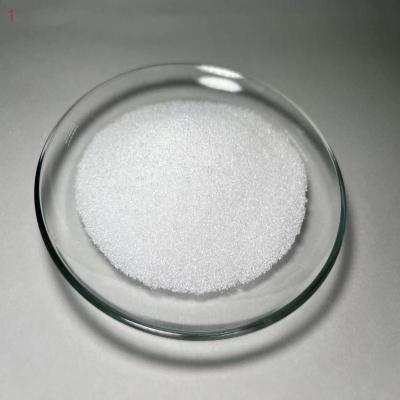-
Categories
-
Pharmaceutical Intermediates
-
Active Pharmaceutical Ingredients
-
Food Additives
- Industrial Coatings
- Agrochemicals
- Dyes and Pigments
- Surfactant
- Flavors and Fragrances
- Chemical Reagents
- Catalyst and Auxiliary
- Natural Products
- Inorganic Chemistry
-
Organic Chemistry
-
Biochemical Engineering
- Analytical Chemistry
-
Cosmetic Ingredient
- Water Treatment Chemical
-
Pharmaceutical Intermediates
Promotion
ECHEMI Mall
Wholesale
Weekly Price
Exhibition
News
-
Trade Service
About 20 years ago, the British "The Economist" magazine called Africa a "desperate continent.
" He also said that in the past 1,000 years, Africa has had more disasters than hope.
However, ten years later, due to a significant increase in labor productivity, a decline in inflation and a boom in the economy, the magazine’s conclusions have taken a 180-degree turn.
Unfortunately, the optimism did not last long.
The oil price plunge in 2014 hit some of the most promising economies on the African continent.
Now, all this is repeating itself.
After the oil price plummeted in 2020, some major oil-producing countries on the African continent are in trouble.
In other words, Angola was Africa's largest crude oil producer five years ago, but its output is now lower than that of Libya.
Nigeria, another OPEC member country, is facing a crisis of repeating the fate of Angola as the oil giant once again slashed capital expenditures.
It is worth mentioning that 5 of OPEC’s 13 member states are from Africa.
Angola: Oil production has fallen to a 15-year low Since November 2020, Angola’s oil production has fallen to a 15-year low of less than 1.
2 million barrels per day, which actually means that Libya’s current crude oil production has exceeded Angola’s .
Angola’s problems have a long history, and the seeds of a sharp decline in production were planted during the 2014 oil price crash.
In addition, in the few years when oil prices fell from US$100 per barrel to less than US$30, major oil giants have cut capital expenditures.
Although OPEC+'s sharp production cuts eventually stimulated a rebound in oil prices, the recovery of offshore drilling activities in Angola and West Africa has been much slower than expected.
The new crown pneumonia epidemic has triggered a new round of significant spending cuts.
The oil service company Baker Hughes reported that by mid-2020, only one drilling ship will be operating in the waters of Angola and Nigeria.
Some of the offshore projects of Total and Eni have helped sustain the offshore oil activities in Angola.
However, the impact of the global epidemic and the subsequent market downturn have left only a small part of Angola's deepwater projects.
Although the International Monetary Fund (IMF) estimates that the oil price is maintained at $55 per barrel to achieve fiscal balance, Angola’s output has fallen by 40% over the past 10 years, indicating that the country has underinvested in new projects for many years.
The oil industry in Angola relies heavily on deep-water oil fields, and the production of deep-water oil fields generally declines faster than onshore oil fields.
It is worth noting that this situation is continuing to deteriorate due to the long-term lack of continuous investment to increase oil recovery or develop more oil reservoirs.
Nigeria: Both Fitch and Standard & Poor’s downgraded the country’s credit rating, Nigeria’s largest oil exporter in Africa, and the situation is not much better Go inside.
Nigeria has only recently recovered from a severe recession in 2017, and it has been struggling with a low growth rate of approximately 2% before the outbreak of the oil crisis.
Oil sales contribute 90% of the country’s foreign exchange earnings, 60% of its income and 9% of its gross domestic product (GDP).
As the fiscal balance point has reached a high of US$144 per barrel, Nigeria can feel the pressure more than many OPEC members.
The country applied for US$7 billion in emergency funding from the African Development Bank, the World Bank and the International Monetary Fund, but due to the plunge in oil prices, both Fitch and Standard & Poor’s downgraded the country’s credit ratings.
As a member of OPEC+, Nigeria will sharply reduce production in 2020, and crude oil exports will drop to 1.
5 million barrels per day, which is the lowest level in four years.
It is less than half of the long-term goal of 2023.
If deepwater drilling activities are not rapidly increased, this goal will still not be achieved.
Major oil companies such as Total, Shell, and Exxon Mobil have expressed concerns that Nigeria’s long-delayed Petroleum Industry Bill (PIB) may hinder investment.
The Nigerian National Assembly’s discussion of the proposed petroleum industry bill in the first quarter of 2021 may lead to major changes in the country’s strategic planning for the oil and gas industry.
At present, international oil prices have recovered from their historical lows, and the price of Brent crude oil has risen to US$69.
63 per barrel on March 11.
Considering that about two-thirds of Nigeria's production comes from shallow waters and onshore oil fields, compared with Angola, the country has greater hopes of recovering from the investment downturn.
63 dollars.
Considering that about two-thirds of Nigeria's production comes from shallow waters and onshore oil fields, compared with Angola, the country has greater hopes of recovering from the investment downturn.
63 dollars.
Considering that about two-thirds of Nigeria's production comes from shallow waters and onshore oil fields, compared with Angola, the country has greater hopes of recovering from the investment downturn.
" He also said that in the past 1,000 years, Africa has had more disasters than hope.
However, ten years later, due to a significant increase in labor productivity, a decline in inflation and a boom in the economy, the magazine’s conclusions have taken a 180-degree turn.
Unfortunately, the optimism did not last long.
The oil price plunge in 2014 hit some of the most promising economies on the African continent.
Now, all this is repeating itself.
After the oil price plummeted in 2020, some major oil-producing countries on the African continent are in trouble.
In other words, Angola was Africa's largest crude oil producer five years ago, but its output is now lower than that of Libya.
Nigeria, another OPEC member country, is facing a crisis of repeating the fate of Angola as the oil giant once again slashed capital expenditures.
It is worth mentioning that 5 of OPEC’s 13 member states are from Africa.
Angola: Oil production has fallen to a 15-year low Since November 2020, Angola’s oil production has fallen to a 15-year low of less than 1.
2 million barrels per day, which actually means that Libya’s current crude oil production has exceeded Angola’s .
Angola’s problems have a long history, and the seeds of a sharp decline in production were planted during the 2014 oil price crash.
In addition, in the few years when oil prices fell from US$100 per barrel to less than US$30, major oil giants have cut capital expenditures.
Although OPEC+'s sharp production cuts eventually stimulated a rebound in oil prices, the recovery of offshore drilling activities in Angola and West Africa has been much slower than expected.
The new crown pneumonia epidemic has triggered a new round of significant spending cuts.
The oil service company Baker Hughes reported that by mid-2020, only one drilling ship will be operating in the waters of Angola and Nigeria.
Some of the offshore projects of Total and Eni have helped sustain the offshore oil activities in Angola.
However, the impact of the global epidemic and the subsequent market downturn have left only a small part of Angola's deepwater projects.
Although the International Monetary Fund (IMF) estimates that the oil price is maintained at $55 per barrel to achieve fiscal balance, Angola’s output has fallen by 40% over the past 10 years, indicating that the country has underinvested in new projects for many years.
The oil industry in Angola relies heavily on deep-water oil fields, and the production of deep-water oil fields generally declines faster than onshore oil fields.
It is worth noting that this situation is continuing to deteriorate due to the long-term lack of continuous investment to increase oil recovery or develop more oil reservoirs.
Nigeria: Both Fitch and Standard & Poor’s downgraded the country’s credit rating, Nigeria’s largest oil exporter in Africa, and the situation is not much better Go inside.
Nigeria has only recently recovered from a severe recession in 2017, and it has been struggling with a low growth rate of approximately 2% before the outbreak of the oil crisis.
Oil sales contribute 90% of the country’s foreign exchange earnings, 60% of its income and 9% of its gross domestic product (GDP).
As the fiscal balance point has reached a high of US$144 per barrel, Nigeria can feel the pressure more than many OPEC members.
The country applied for US$7 billion in emergency funding from the African Development Bank, the World Bank and the International Monetary Fund, but due to the plunge in oil prices, both Fitch and Standard & Poor’s downgraded the country’s credit ratings.
As a member of OPEC+, Nigeria will sharply reduce production in 2020, and crude oil exports will drop to 1.
5 million barrels per day, which is the lowest level in four years.
It is less than half of the long-term goal of 2023.
If deepwater drilling activities are not rapidly increased, this goal will still not be achieved.
Major oil companies such as Total, Shell, and Exxon Mobil have expressed concerns that Nigeria’s long-delayed Petroleum Industry Bill (PIB) may hinder investment.
The Nigerian National Assembly’s discussion of the proposed petroleum industry bill in the first quarter of 2021 may lead to major changes in the country’s strategic planning for the oil and gas industry.
At present, international oil prices have recovered from their historical lows, and the price of Brent crude oil has risen to US$69.
63 per barrel on March 11.
Considering that about two-thirds of Nigeria's production comes from shallow waters and onshore oil fields, compared with Angola, the country has greater hopes of recovering from the investment downturn.
63 dollars.
Considering that about two-thirds of Nigeria's production comes from shallow waters and onshore oil fields, compared with Angola, the country has greater hopes of recovering from the investment downturn.
63 dollars.
Considering that about two-thirds of Nigeria's production comes from shallow waters and onshore oil fields, compared with Angola, the country has greater hopes of recovering from the investment downturn.







